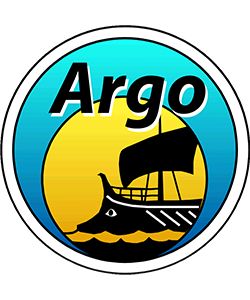Argo supports five Argo Regional Centers (ARCs) that are divided mostly by ocean basin. These regional centers are an important part of the Argo program since they help to ensure the quality of Argo data in a more focused manner than the DACs or GDACs, but in a broader sense than the individual scientists. They can also encourage participation and collaboration between countries working in the same ocean region and provide data products to user.
- Atlantic Regional Centre
- Pacific Regional Centre
- Indian Regional Centre
- Southern Ocean Regional Centre
- MedArgo Regional Centre
What are the essential activities of Argo Regional Centers?
- Perform regional analysis of all the Argo data in the region to assess its internal consistency as well as its consistency with recent shipboard CTD data.
- Provide feedback to PIs about the results of the regional analysis and possible outliers.
- Facilitate development of a Reference Data Base for delayed mode quality control. This includes assembling the most recent CTD data in their region.
- Prepare and distribute Argo data products on a regular basis. The main data product will be a consistent Argo delayed mode dataset for their region, but other products might include weekly analyses of temperature, salinity and currents calculated from floats. Documentation of these products will also be provided.
What are the optional activities of Argo Regional Centers?
- Coordinating Argo float deployments for the region, including information on ships of opportunity and research vessels and guidance on regional float deployment.
- Develop new quality control tests for their region if appropriate. It may be expected that new procedures will be developed to check data quality and can be implemented earlier in the data system.
- Provide delayed mode quality control to national programs in their region without such capabilities.
- Compare Argo data with model output and with assimilated fields to understand why specific data are rejected by assimilations (e.g. model inconsistencies, systematic data errors).
- Provide documention of the procedures being done at the ARC.
